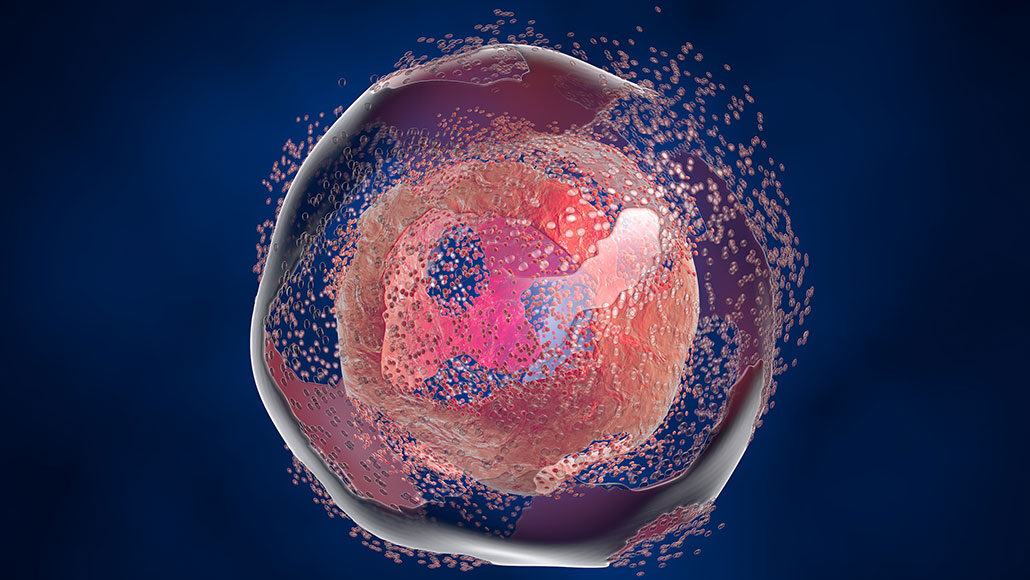apoptosis: A process of cell death in which a cell carries out a series of steps to die without harming other cells around it.
cell: The smallest structural and functional unit of an organism. Typically too small to see with the unaided eye, it consists of a watery fluid surrounded by a membrane or wall. Depending on their size, animals are made of anywhere from thousands to trillions of cells. Most organisms, such as yeasts, molds, bacteria and some algae, are composed of only one cell.
develop: (in biology) To grow as an organism from conception through adulthood, often undergoing changes in chemistry, size, mental maturity, size or sometimes even shape.
development: (in biology) The growth of an organism from conception through adulthood, often undergoing changes in chemistry, size and sometimes even shape.
limb: (in physiology) An arm or leg. (in botany) A large structural part of a tree that branches out from the trunk.
womb: Another name for the uterus, the organ in mammals in which a fetus grows and matures in preparation for birth.

